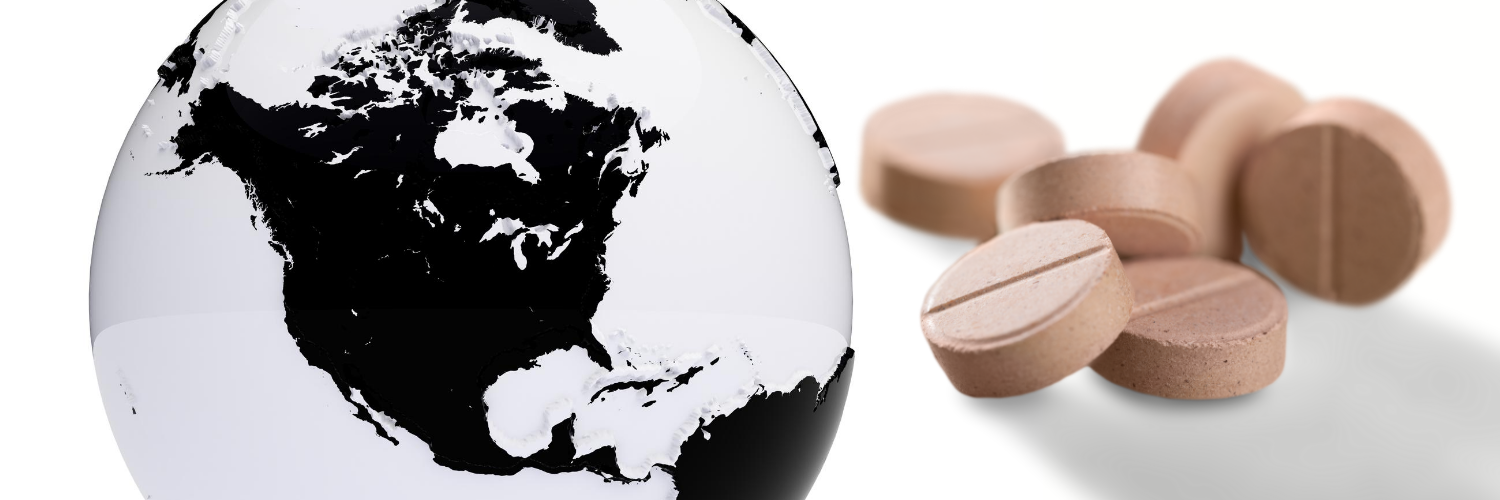Prominent Patient Advocate Regards Importation as Crucial 'Safety Valve' to Affordable Eliquis

David Mitchell, president and founder of the advocacy organization Patients For Affordable Drugs, recently told Politico’s Prescription Pulse he used PharmacyChecker.com to find a reputable online pharmacy from which he could order affordable Eliquis.
For decades, U.S. consumers have turned to foreign pharmacies online to obtain medication. The healthcare landscape in the United States has left them little choice – especially when it comes to patented, brand-name drugs and their bloated prices. As Mitchell came to find, insurance coverage and Medicare too often prove unhelpful: If he wanted to continue taking his prescribed drug therapy, he had to pave his own way:
...his Part D plan wouldn’t cover the drug — or allow Mitchell to pay out-of-pocket for it — because he was required to try rival drug Xarelto first as part of his insurance plan’s step-therapy approach to managing costs.”
Mitchel told Prescription Pulse that “[he] used PharmacyChecker, a website that monitors and vets international online pharmacies’ credentials, to find a Canadian pharmacy from which he could buy Eliquis for nearly a third of the price in the U.S…”
PharmacyChecker, which has run its International Pharmacy Verification Program since 2003, provides critical verification services that empower patients such as Mitchell with the necessary information to safely order prescription drugs online from licensed and reviewed international online pharmacies.
“‘Personal importation is like a safety valve,’ Mitchell told Prescription Plus. ‘My plan wouldn’t give me the best drug for me.’”
Comparing Drug Costs Internationally
PharmacyChecker lists the prices of the pharmacies that comply with program standards so patients can easily compare out-of-pocket drug costs, as well as shipping and safety profile information of each pharmacy. For Americans, that means evaluating the online pharmacy pricing as it compares to discount coupon prices offered at local U.S. pharmacies, which PharmacyChecker includes in its comparisons.
The lowest price for a 5mg tablet of Eliquis is $0.56 per tablet, according to PharmacyChecker pricing data, a price sourced from a Turkish dispensing pharmacy. The lowest price currently listed by a Canadian online pharmacy is $2.21 per tablet. Both pharmacies are accredited and monitored in the PharmacyChecker International Pharmacy Verification Program.
U.S. pharmacy coupon prices published on PharmacyChecker.com hover around $9.50 per pill. That means a U.S. resident could order their Eliquis from a Turkish pharmacy and save 94% off the U.S. coupon price.
Eliquis International Price Comparison
5 mg - 60 tablets
| Average Retail Price at U.S. Pharmacies | Coupon Price at U.S. Pharmacies | Mail Order Price from an International Online Pharmacy* | Mail Order Price from a Canadian Online Pharmacy |
| $665.72 | $581.40 | $33.60 | $156.95 |
Prices collected January 2024. The Average Retail Price at U.S. Pharmacies was sourced from GoodRx.com. All other pricing is derived from prices and quantities compared on PharmacyChecker.com. Mail order prices include shipping costs.
*This particular price is from an online pharmacy that works with a Turkish dispensing pharmacy. PharmacyChecker-accredited international online pharmacies partner with dispensing pharmacies located in Canada, Australia, India, Mauritius, New Zealand, Turkey, the UK, and the United States. Online pharmacies that only work with dispensing pharmacies located in Canada are clearly marked on PharmacyChecker.com with a Canadian flag icon. Patients may also see a “Tier 1” icon, which means that an online pharmacy accredited by PharmacyChecker only fills prescription orders through their own pharmacy or dispensing pharmacy partners in Australia, Canada, New Zealand, the United Kingdom, or the U.S. Such countries are known to have equally advanced pharmaceutical and pharmacy regulatory systems. It’s important to stress that all PharmacyChecker-accredited online pharmacies (tier 1 and non-tier 1) meet the same high standards as identified in the PharmacyChecker International Pharmacy Verification Program.
What exactly is the FDA’s policy on personal importation?
As noted in Prescription Pulse, Gabriel Levitt, co-founder of PharmacyChecker.com, believes that the U.S. FDA’s personal importation policy “doesn’t reflect the latitude Congress has granted the regulator to sanction the practice.” But what exactly is the FDA’s current policy on personal importation of prescribed medication?
The FDA website states that in most circumstances, it is illegal for individuals to import drugs into the United States for personal use. The agency does not, however, object to the personal importation of medication should the order fall under the following circumstances:
- The drug is for use for a serious condition for which effective treatment is not available in the United States;
- There is no commercialization or promotion of the drug to U.S. residents;
- The drug is considered not to represent an unreasonable risk;
- The individual importing the drug verifies in writing that it is for his or her own use, and provides contact information for the doctor providing treatment or shows the product is for the continuation of treatment begun in a foreign country; and
- Generally, not more than a 3-month supply of the drug is imported.
The fact that no individual has ever been prosecuted for importing prescription medication for personal use is perhaps by design. According to a KFF poll, the majority of the public is in favor of Americans being able to buy prescription drugs imported from Canada. Current law is explicit in directing the FDA to exercise discretion in permitting such imports. Consider the following general instruction written in “Chapter 9: Import Operations and Actions” of the U.S. FDA Regulatory Procedures Manual: “FDA personnel may allow entry of shipments when the quantity and purpose are clearly for personal use, and the product does not present an unreasonable risk to the user.” If an imported drug appears to violate FDA policy, Customs and Border Protection (CBP) will bring the import to the attention of FDA personnel who will then “decide on a case by case basis whether to detain, refuse, or allow entry of the product.”
While the law does allow the FDA and CBP to detain and refuse international prescription orders arriving through the mail, less than one percent of medication orders are stopped, at least for imports under a 90-day supply.




